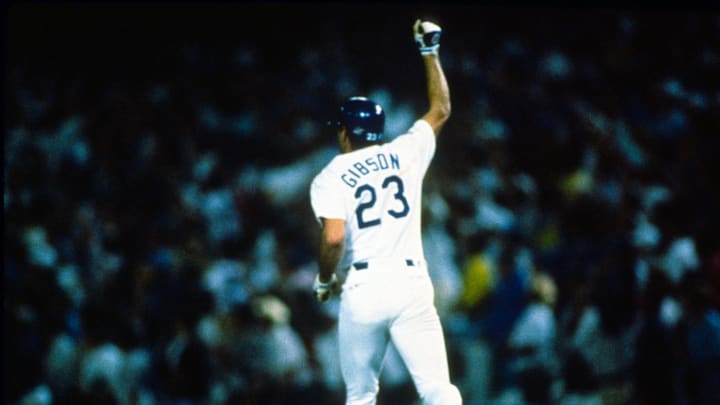5. Damon Berryhill, 1992 Atlanta Braves. Hardly one of the stars of what would become the Braves juggernaut, Berryhill nonetheless got the start at catcher for Game 1 of the 1992 World Series against the Toronto Blue Jays at Atlanta Fulton County Stadium.
Hitless in his first two at bats, Berryhill got a third shot at Jays starter Jack Morris with two out in the bottom of the sixth. Morris had held the Braves scoreless in a 1-0 game to that point, although a walk and base hit left two potential RBIs for Berryhill when he came up a third time.
Berryhill wasn’t much of a slugger; his 10 home runs that season were a career high. But in a 1-2 hole he caught hold of a Morris offering and pulled it deep into the right field seats for a three-run blast. It was all the support Braves starter Tom Glavin needed to wrap up a 3-1 victory, although the Jays would capture the Series in six games. Berryhill Win Probability Added: 44 percent.
4. Solly Hofman, 1908 Chicago Cubs. The Tigers and Cubs, both repeat champions from 1907, squared off in a rematch of that year’s World Series, which the Cubs had won 4-0 with one tie. Hofman, part of a center field platoon, got the call against Detroit left-hander Twilight Ed Kilian, but was hitless in three at bats when Chicago came up in the top of the ninth at Detroit’s Bennett Park.
The Tigers led 6-5 only to see three of Chicago’s first four batters single off Ed Summers, who had taken over for Kilian back in the third inning.
With the bases loaded, Hofman capitalized on his chance to redeem his lackluster showing to that point. He sent Summe’s pitch bounding into center field scoring both Frank Schulte from third base and Frank Chance from second with the tying and go-ahead runs. Before Summers could escape Chicago had added three more runs for a 10-6 victory on the way to a four games to one Series victory. Hofman Win Probability Added: 46 percent.
